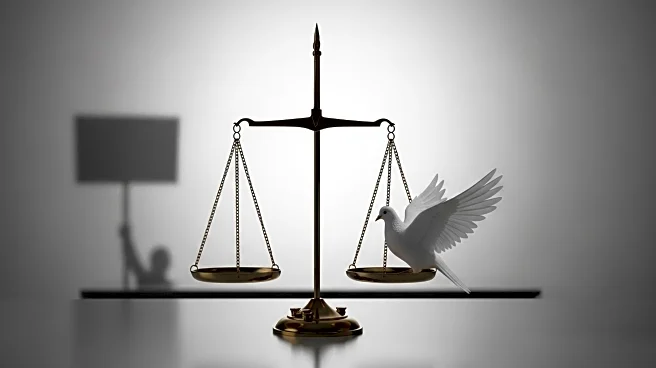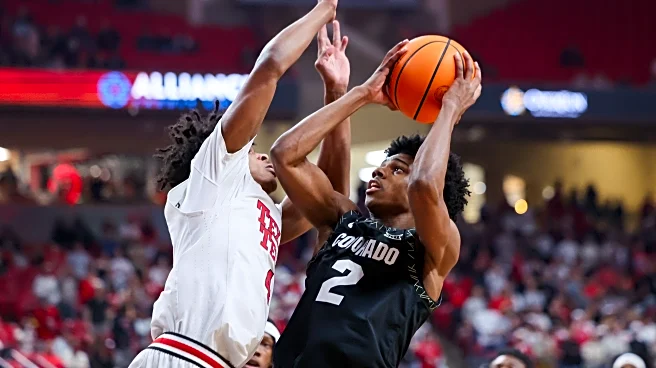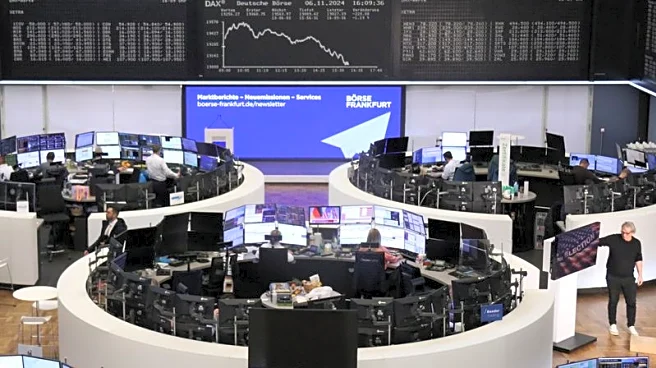What's Happening?
A federal judge has determined that the Trump administration violated the constitutional rights of pro-Palestinian protesters by attempting to deport international students and scholars who expressed pro-Palestinian views. The ruling, issued by U.S. District Court Judge William Young, found that Secretary of Homeland Security Kristi Noem and Secretary of State Marco Rubio, along with their departments, intentionally sought to suppress the free speech and assembly rights of non-citizen protesters. The case was brought forward by the American Association of University Professors and the Middle East Studies Association, representing numerous professors and students nationwide. The court found that the administration's actions were aimed at creating a chilling effect to deter others from participating in similar protests.
Why It's Important?
This ruling underscores significant concerns about the Trump administration's approach to First Amendment rights, particularly in relation to dissenting voices on sensitive international issues. The decision highlights the potential misuse of immigration laws to silence political expression, raising alarms about the broader implications for academic freedom and civil liberties in the U.S. The ruling may embolden other groups to challenge government actions perceived as infringing on constitutional rights, potentially leading to increased scrutiny of executive actions and policies. The case also reflects ongoing tensions between the administration's policies and the judiciary's role in upholding constitutional protections.
What's Next?
The ruling may prompt further legal challenges against similar government actions perceived as targeting free speech. It could also lead to increased advocacy and support for pro-Palestinian movements within academic and civil society circles. The administration may face pressure to reassess its approach to handling dissent and immigration enforcement related to political expression. Additionally, the decision could influence future policy discussions and legislative efforts aimed at protecting First Amendment rights, particularly for non-citizens and marginalized groups.
Beyond the Headlines
The case highlights the ethical and legal challenges of balancing national security concerns with the protection of civil liberties. It raises questions about the extent to which government agencies can or should use immigration laws to influence political discourse. The ruling may also contribute to a broader dialogue about the role of universities and academic institutions in safeguarding free speech and fostering diverse viewpoints, especially in politically charged contexts.











